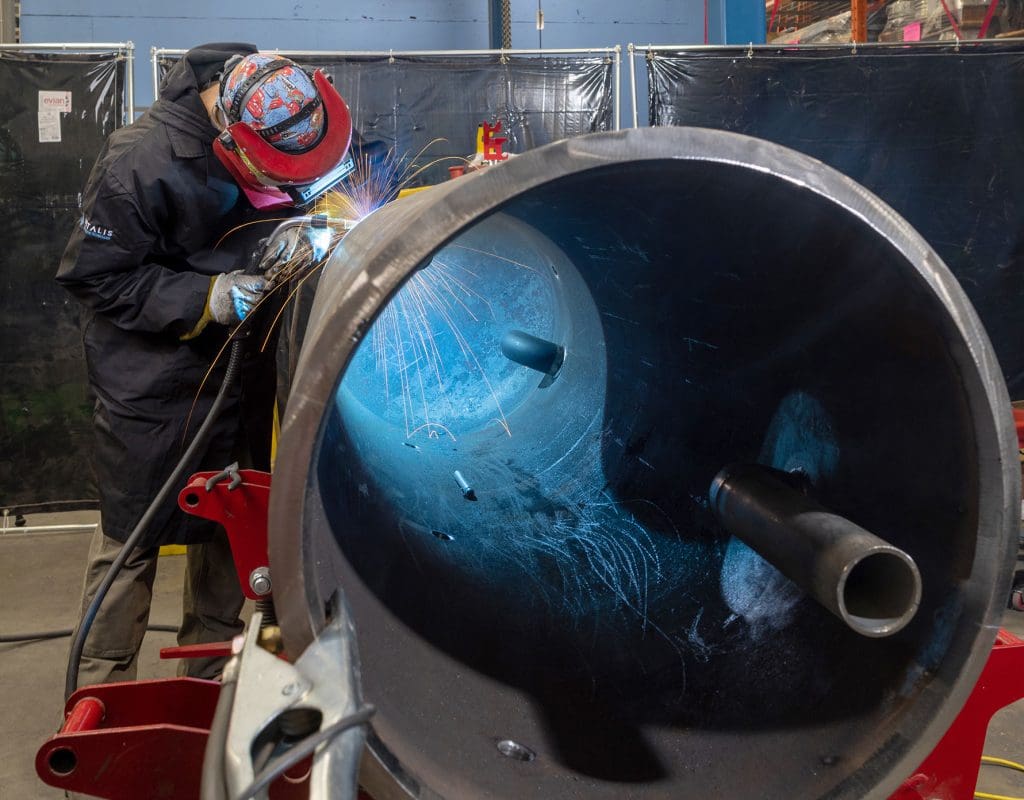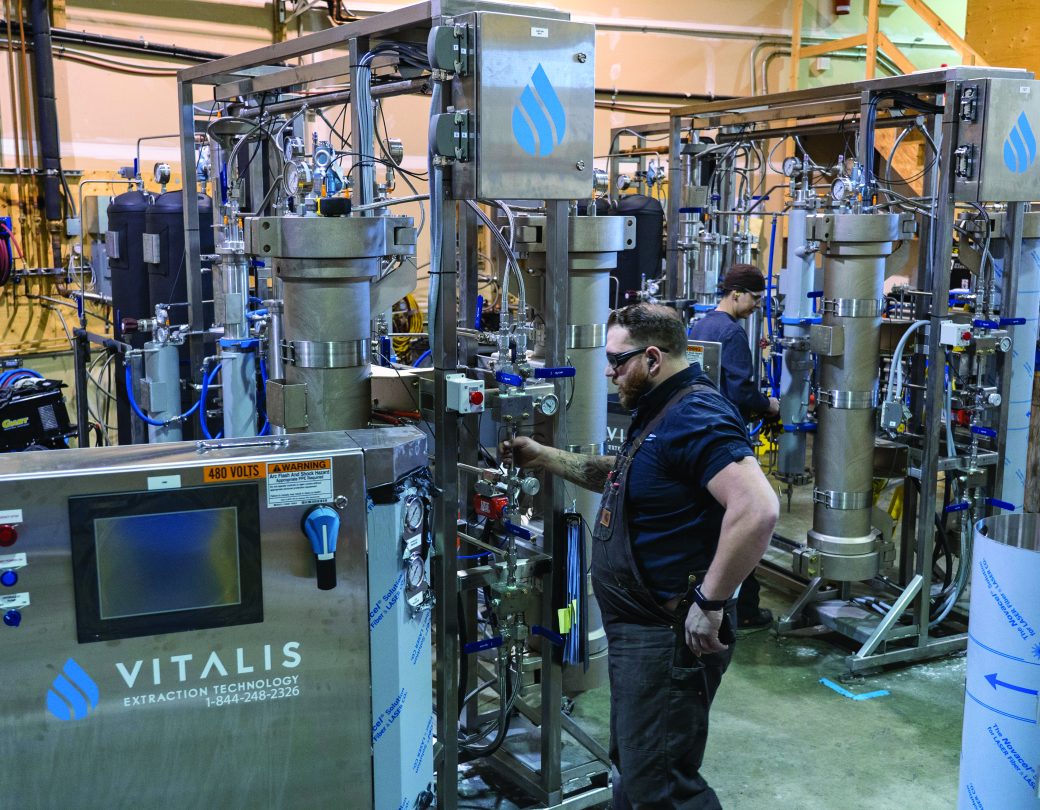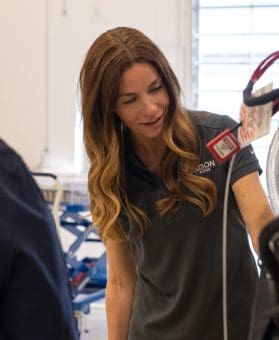Since its launch in 2016, Vitalis has used its expertise in CO2 handling to develop original equipment, supporting and furthering the clean tech industry within the Central Okanagan, BC, and beyond.
“What started as a core competency in CO2 handling has now allowed us to utilize that knowledge and create different lines of products,” says Carla Berrie, VP of Revenue. “Our extraction machines are CO2-based, using the gas in its liquid and supercritical fluid phases as a solvent to pull the terpenes and cannabinoids out of cannabis primarily. From there, we started to expand into other markets, including hops extraction, which has taken off.”
Taking elements from the original extraction machines, Vitalis developed its R744 heating and cooling solutions for commercial- and industrial-sized applications, which use CO2 as a natural refrigerant. Its Coolshift chiller for breweries is one example.
“The reason we use CO2 is that it’s a clean solvent, it’s a clean refrigerant, it has low global warming potential, and it’s non-toxic,” explains Berrie, noting that CO2 has a “bit of a funny rep” because it is also used as the unit of measure for global warming potential.
“If you were thinking of CO2 as a refrigerant, the global warming potential is 1, whereas if you think about the refrigerants that are most commonly used right now, synthetic refrigerants, you are getting into the 3,200 global warming potential. So, CO2 is extremely low with the global warming potential,” she adds.
The Coolshift chiller, as Berrie describes it, uses R744 (CO2) to recover “waste” heat from the chilling process, offsetting the need for gas boilers to create hot water, which is used a lot in breweries. The chiller can also be paired with a system that captures CO2 from the fermentation process, which is then cleaned, liquefied, and provided back to the brewery for its numerous CO2 needs.
“It’s a big deal in Western Canada, as there are not a lot of CO2 suppliers,” notes Berrie. “It can provide breweries with CO2 independence, and the ROI on the chiller unit is quick, about one to two years.”
Offering product lines that benefit businesses by contributing to their success and profitability, while also reducing their environmental footprint, is the sweet spot for Vitalis and what they are most excited about. Profitability is also one of the “Ps” that guide the team’s work.
“As we’ve matured as a company, we’ve solidified our commitment to planet, profit, and performance. For us, right now, the planet is rooted in CO2 technologies,” says Berrie. “When we talk about performance, we talk about not only the performance of our machines but also about the safety aspect of what we do.”
This safety aspect leads to what Berrie says would be a fourth “P” in the equation—people. The company is heavily involved in safety-related matters and, at the end of 2022, was featured in a WorkSafe BC health and safety profile piece for its work in the cannabis industry.





